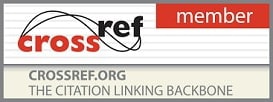Vol. 6, Issue 6, Part B (2019)
Smoke repellency effect of Wrightia tinctoria (Roxb.) R.Br. (Apocynaceae) on mosquitoes
Author(s): Murugesan Sakthivadivel, Samuel Tennyson, Subramanian Arivoli, Selvanayagam Selvakumar, Sakthivadivel Jeyabharathi and Grace Marin
Abstract: Plants and its derivatives have been used as a fumigant traditionally to repel and kill mosquitoes and for protection from mosquito bites. Several field evaluations, where plants were burned to produce smoke to repel mosquitoes have shown good reduction in mosquito landings. In the present study, the crude fruit and leaf extracts of Wrightia tinctoria were tested for its repellent efficacy against mosquitoes under field conditions. Repellent coil with one per cent concentration of fruit/leaf extract prepared was evaluated for 24, 48 and 72 hours during the peak hours which was standardized. The repellent coil of each plant part and its extract was burned and the protection time for the same were recorded. The overall assessment indicated that the aqueous fruit extract of Wrightia tinctoria provided a protection time of 192 and 176 minutes in petroleum ether followed by its leaf extract with 143 and 135 minutes respectively against mosquitoes. The control of the fruit and leaf extract provided a protection time of 37 and 26 minutes respectively. Further studies on the isolation and purification of bioactive phytochemical constituents/compounds followed by in-depth field bioassays are needed as the present study shows that there is scope to use Wrightia tinctoria extracts to repel mosquitoes.
Pages: 124-129 | 1331 Views 257 Downloads

How to cite this article:
Murugesan Sakthivadivel, Samuel Tennyson, Subramanian Arivoli, Selvanayagam Selvakumar, Sakthivadivel Jeyabharathi, Grace Marin. Smoke repellency effect of Wrightia tinctoria (Roxb.) R.Br. (Apocynaceae) on mosquitoes. Int J Mosq Res 2019;6(6):124-129.







